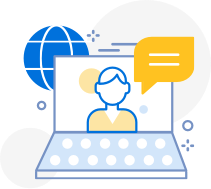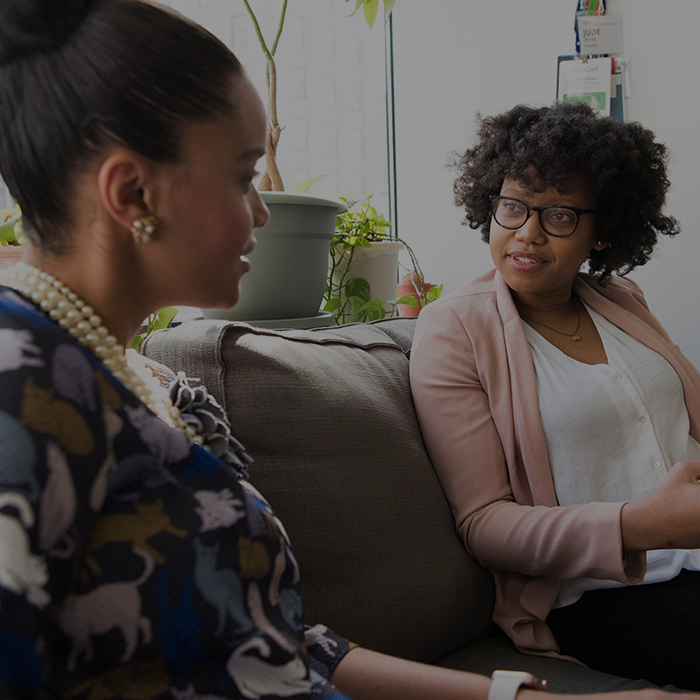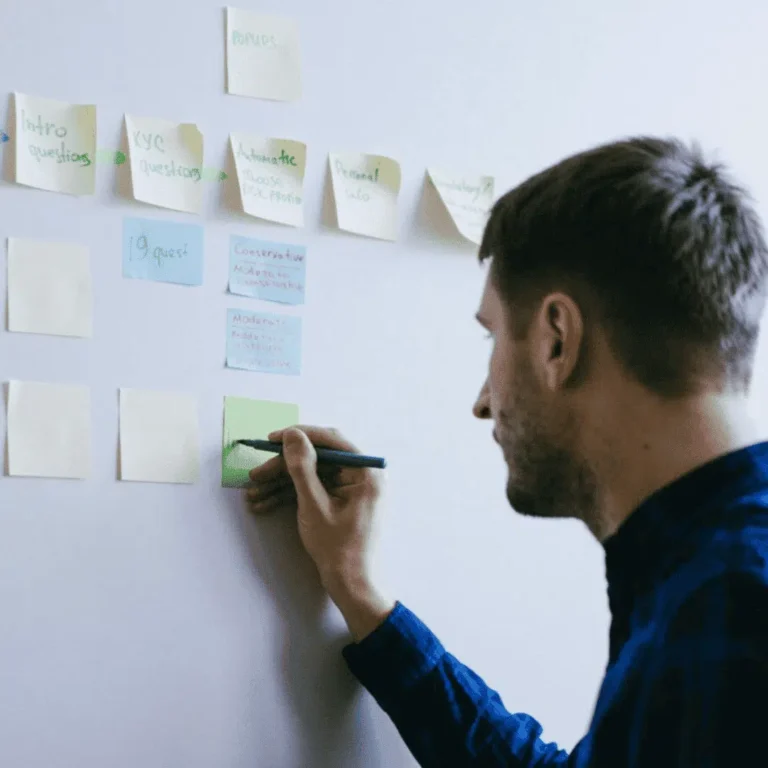Lifelong learning or lifelong learning is the most discussed topic in the field of education. But what exactly do we mean when we talk about lifelong learning? In this article, we will discuss lifelong learning and its learning culture in detail and examine its importance in today’s world.
What is lifelong learning? terms and definitions
What exactly do we mean when we talk about lifelong learning?
According to the UNESCO Institute for Lifelong Learning , the term means: “Lifelong learning is the continuous, voluntary and self-motivated pursuit of knowledge, whether for personal or professional reasons.” The concept can encompass many different forms of learning. That means we learn
- better support ourselves, our families and our communities,
- to realize ourselves personally,
- to think critically
- to develop ourselves personally and professionally,
- to keep us fit for the labor market or just
- to have fun.
At its core, for example, is breaking the current model by promoting learning opportunities, practice, interactive learning research and new technologies throughout our lives.
It also means transforming our formal education system to encourage joy in learning and to lead to success in everyone. It also prepares students for lifelong learning with joy.
There are also concepts of the European Union to promote the improvement of knowledge, qualifications and skills. According to the EU definition, lifelong learning or lifelong learning includes “all learning throughout life that serves to improve knowledge, qualifications and skills and takes place within the framework of a personal, civil society, social or employment-related perspective”. The Action Plan on the European Pillar of Social Rights sets the target that by 2030 at least 60% of all adults should take part in a training measure every year. The EU sees ” learning new skills as the best investment – an investment that benefits workers, employers and the economy as a whole.”
importance of lifelong learning
Lifelong learning will enable people to evolve and use the full potential of our 7 billion minds to make the world a better and more peaceful place. Those who cannot access schools can still obtain an apprenticeship certificate or gain professional skills to improve their lives.
They can learn life skills that will help them lead happier, healthier lives. When people have jobs they love, they can make a positive impact on society and contribute to a happier community. When one happy community connects with another, the world becomes a better place.
Global view: why is lifelong learning necessary?
We are now living longer than ever before: global life expectancy has increased from 45 years in 1950 to around 70 years today. However, if you look at the life cycle of the average person, most of our educational and learning opportunities are limited to school days in childhood and adolescence. In reality, however, we know that people have the potential to be lifelong learners.
We also know that formal education and careers, such as school, training, studies, further education, do not always work when it comes to preparing us all for our whole lives. Educational opportunities – with no qualifications – in the formal system are sometimes unequal, and many are left behind or excluded along the way.
About half of all public educational resources in low-income countries go to the top 10% of students. And UNESCO data shows that there are huge inequalities in care.
Without after-school learning opportunities, there is no second chance or safety net for those who have fallen behind. In addition, UNESCO data confirms that around 758 million adults worldwide are illiterate, 63% of them in Asia.
Literacy costs more than $1 trillion a year worldwide, and there is an ever-growing need for lifelong learning opportunities and perspectives that support livelihoods, personal development, lifelong learning, organizational learning, and so on.
Despite this fact and the fact that we live most of our lives as adults. Almost half of the countries in the world spend less than 1% of their public education budget on adult and continuing education.
Today the world is radically different. Technology is evolving faster than ever. An estimated 65% of children will end up in jobs that don’t even exist today, and there may be even more changes to come.
Can formal schooling alone absorb these changes?
The next generations of digital natives may face even greater challenges than we face now, requiring the search for new solutions – from growing inequality, rapid advances in digitization and artificial intelligence to conflicts, displacement and climate change. It will take the sum of everyone’s potential to solve these problems for a better world.
What do you think the possibilities would be if we could expand educational opportunities beyond the formal level? Imagine what would happen if more than 7 billion people around the world were able to learn for life.
What to do to become a lifelong learner? change mindset
There are two key dimensions that are important to us if we want to make the shift to lifelong learning:
- changing our way of thinking
- Conversion of our systems.
The first aspect means that we go deep within ourselves and question our own assumptions about learning.
The second is about redesigning our systems to support lifelong learning opportunities for all.
So what does mindset have to do with it?
Talent used to be believed to be rare. Some extraordinary people were born to be great scientists, philosophers, mathematicians, astronomers, entrepreneurs, or businessmen. Thanks to the work of researchers such as Carol Dweck, Angela Duckworth and Martin Seligman.
We now know that mindset plays an important role in the extent to which we learn and develop. In her research, Carol Dweck distinguishes between two different mindsets: a “fixed mindset” where the person believes their talents and abilities are fixed. And a growth mindset where the person believes we all have the potential to learn and grow over time.
Individuals with a growth mindset were more likely to view failure as temporary and as an opportunity to learn, gave up less often, and were more likely to choose more difficult tasks because they offered an opportunity to learn.
Today, we no longer regard genius as something endowed and gifted solely with high intelligence, but as something built with time, hard work, and dedication. Even the most well-known geniuses have had extraordinary difficulties but persevered nonetheless – they all have a lifelong learning in common.
People may approach learning in different ways, but ultimately we all have the potential to learn and grow over time.
In fact, Ander Ericson, a researcher in the field of expertise and human performance, believed that anyone with 10,000 hours of conscious practice can become a world-class expert in the field.
How can we change our way of thinking?
Think of learning as a continuum: learning is a marathon, not a mind.
Use “Not Yet”
Use “not yet” to describe abilities that are not yet mastered, rather than considering weaknesses as permanent.
grit and endurance
Tell learners that they need to work hard and persevere to achieve their learning goals and encourage a positive attitude towards learning.
reluctance to judge
Refrain from making judgments about ability and whether someone is suited for a particular job or path. Instead, try to open up different learning options and empower learners to increase their competences, to make informed decisions about their own learning path.
Implementing this philosophy can help us and others find more fulfillment in our work, live happier lives, and get closer to the kind of impact we want to make.
Shifting to a lifelong learning mindset means
- A departure from the traditional notion of genius.
- Recognize that expertise is built through time and practice.
- Recognizing that every human being has the potential to learn and grow at every stage.
- And that mentality and the philosophies that undermine it should guide our systems to support learning in our society.
- Not everything depends on mentality, but it is an essential ingredient for all of us to make the change and become a learning society.
Change in our thinking systems
The second area is just as important: changing our systems.
We know that the quality of the learning environment and the availability of learning opportunities play a crucial role in the development of people’s talents, skills and life chances.
It is the government’s responsibility to ensure inclusive and equitable lifelong learning opportunities for all by increasing the number of learning venues, services and opportunities online and offline.
We can give everyone, across all ages and walks of life, the opportunity to learn so they can become lifelong learners. This means we need to strengthen our adult education systems and refocus our formal systems to support lifelong learning.
Strategies for building adult education as an organization
Plan your adult education
Carefully plan your adult education and training spaces, making use of existing community spaces and resources. You don’t always have to build new facilities, you can also use public spaces such as libraries, town halls or schools or work with local businesses to use existing spaces. A needs analysis should always come first before you determine what type of learning venue you need.
Defining measurement criteria is crucial
Learning spaces for adults should meet the following criteria: Learning
- accessible,
- accessible,
- customizable and
- make acceptable.
Tools are key
The drafting of legislation is an important step in providing strategic direction and defining the role and responsibilities of government and service providers in adult education and training.
Promotion of a wide range of qualifications
Use an integrated national framework that recognizes and links learning achievements across different educational pathways and support lifelong learners in the transition from one pathway to another.
Qualified trainers
Develop a way to ensure the quality of adult educators, including education and training.
Lobbying is key
Raising awareness and advocating a shift from school learning to lifelong learning. It also means that the lifelong learning mindset, approach and philosophy must be encouraged from an early age in school and throughout life.
Partnership is the key
Use the full potential of partnerships by sharing your goals with the public, private sector and NGO organizations. This can even open up new avenues of collaboration.
Record and monitor
Establish adult education and training monitoring and reporting system to assess progress and provide information[Politik] .
Finance
Increase of the existing budget and development of new financing methods.
Supporting changes in the formal system
Work with others to support changes in formal schooling that ensure children are prepared for lifelong learning.
Incorporating these elements will support stronger systems that promote quality learning opportunities throughout society
How to personally become a lifelong learner?
Lifelong learning is one of the great opportunities in life, as it serves to continuously develop personal qualifications and skills. Refuse to be defined by your college degree or any particular talent. It’s time to realize that there is a vast world out there. And you’ve only scratched the surface.
Why become a lifelong learner?
There are many reasons why you should adopt this mentality. Before we discuss how to stimulate your brain, let’s find out why:
Professional goals
The simplest reason that can be combined with a tangible benefit. Almost every skill you learned in school will become obsolete. Once you get your first job you will be faced with a flood of things, terms and concepts that you need to learn. From job applications to soft skills – the list is endless. Lifelong learning is crucial to staying current in your professional field.
opportunities for leadership
Some of the best leaders are those who master a variety of skills. Even if they don’t master every single one. If you can appreciate and speak out on a wide range of subjects, you will relate to far more people.
Bless you
The necessity of maintaining health to meet life’s challenges is self-evident. Yet many do not focus as much on mental health as they should. What is meant here is the brain and cognitive abilities. Studies have shown that continuous education and training strengthens the proper functioning of the brain. It also prevents the onset of dementia and Alzheimer’s.
satisfaction
This is the point that is difficult to measure, but you will notice. People like to tell you what you can and can’t do, but rarely do adults tell themselves otherwise. Forget that. One of the greatest joys is deciding to learn something new and achieve the goal. Sharing with others is just as satisfying. And in the end, you took control of who you became.
Conclusion
Anyone can implement lifelong learning and everyone has the potential to grow.
Opportunities to learn should be everywhere and not just limited to the school days of our childhood and adolescence.
Two things should change to support the transition to lifelong learning: our mindset and our systems.
Lifelong learning helps people prepare for tomorrow’s world and solve the most pressing global challenges.
When everyone knows they can learn and have the potential to grow throughout life. And when learning opportunities are accessible to everyone, everywhere, that’s the beginning of a brighter future for all of us. It starts with our society shifting towards lifelong learning.








